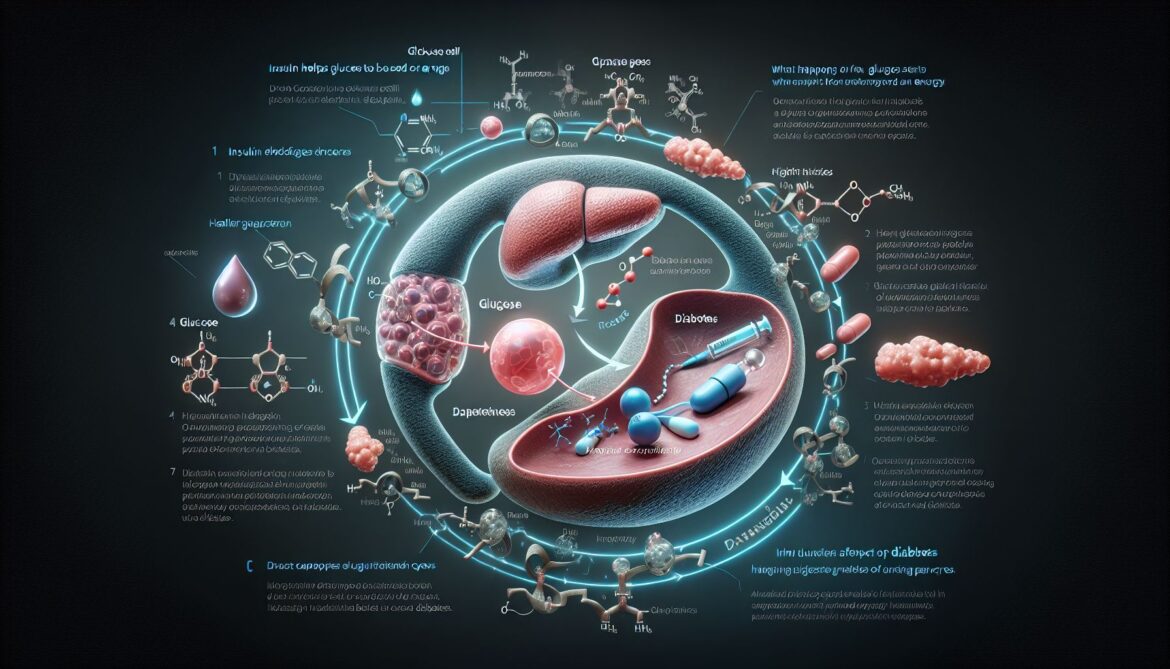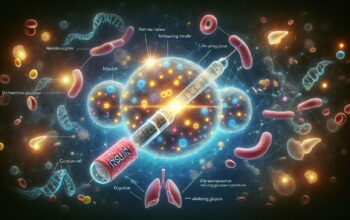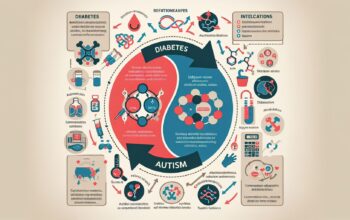Insulin and diabetes have a complicated relationship, and a deep understanding of it is paramount for managing the disease. With more than 34.2 million Americans diagnosed with diabetes and approximately 1.6 million of them having Type 1 diabetes – which directly impacts insulin production, according to the American Diabetes Association – it becomes critical to demystify the interaction between insulin and diabetes for the sake of those affected and those who might be at risk. This blog post will delve into the intricate relationship between insulin and diabetes, with an in-depth look at how the body uses insulin, the difference between Type 1 and Type 2 diabetes, and why effective insulin treatments are crucial in managing diabetes.
A Primer on Insulin – What is it and why is it essential?
Before plunging into the deep correlation between insulin and diabetes, it’s necessary that you understand what insulin is and its importance in the human body. Insulin is a hormone produced by the pancreas, specifically by its beta cells, that regulates the amount of glucose in the blood. It acts as a key, allowing glucose to leave the bloodstream and enter the body’s cells to be used for energy.
However, if insulin production or how the body uses it is disrupted, it can result in dangerously high or low blood sugar levels as it happens in diabetes. This is where the interaction between insulin and diabetes really comes into play.
The Types of Diabetes and their Connection with Insulin
Type 1 Diabetes: An Autoimmune Condition
Type 1 diabetes is an autoimmune condition where the body’s immune system mistakenly attacks and destroys the insulin-producing beta cells in the pancreas. This attacks lead to an insulin deficiency, with no or very little insulin being produced. Consequently, glucose cannot enter the cells and accumulates in the bloodstream, leading to hyperglycemia or high blood sugar.
People with Type 1 diabetes must take insulin every day to survive. Insulin therapy attempts to mimic the body’s normal insulin response, which varies throughout the day. However, different types of insulin work differently, and creating the right insulin regimen can be complex.
Type 2 Diabetes: Resistance to Insulin
Type 2 diabetes, on the other hand, develops when the body becomes resistant to the effects of insulin or doesn’t produce enough insulin to maintain normal glucose levels. In simple terms, the key (insulin) is no longer able to unlock the door (cell) efficiently, causing glucose to build up in the blood. Although this type of diabetes might not always require insulin therapy in the beginning, over time, many individuals with Type 2 diabetes will require it as their bodies gradually lose the ability to produce insulin.
The Importance of Effective Insulin Treatment in Diabetes
Given the relationship between insulin and diabetes, managing diabetes largely revolves around managing insulin levels appropriately. Effective insulin treatment, either through insulin injections or insulin pumps, can help maintain the right amount of glucose in the blood and prevent both short-term and long-term complications associated with diabetes.
However, finding the correct insulin regimen can be a challenge. It involves not just deciding on the right type, dose, and timing of insulin but also requires adjusting the regimen according to dietary habits and lifestyle changes. It’s a combined effort of the healthcare team and the patient, focusing on individual needs and changing conditions.
In conclusion, understanding the relationship between insulin and diabetes is crucial for both prevention and management of the disease. By taking the necessary steps to monitor and control insulin levels, you can prevent diabetes complications and live a healthier life. Remember, even though diabetes is a serious disease, it can be effectively managed with the right treatment plan. Be sure to work with your healthcare provider to find the most suitable regimen for you.




